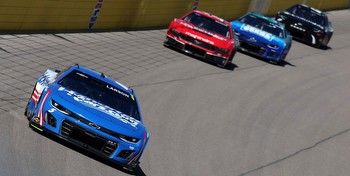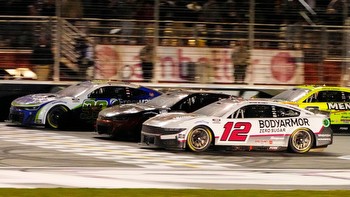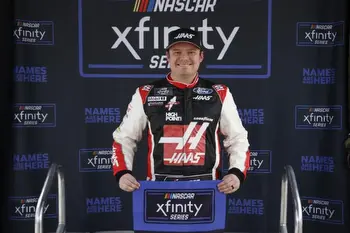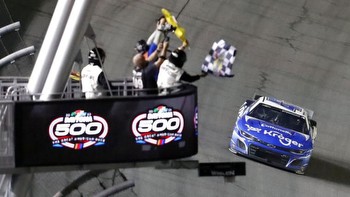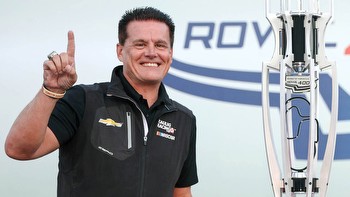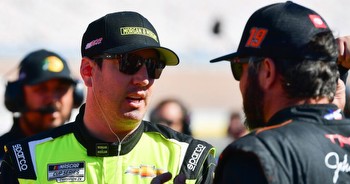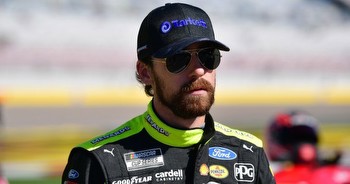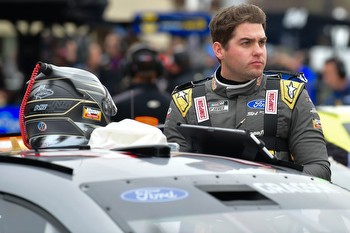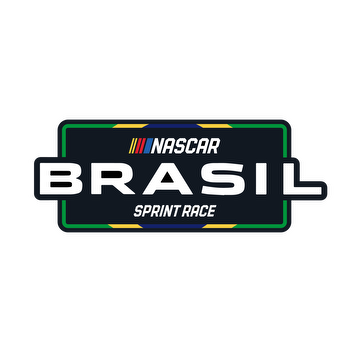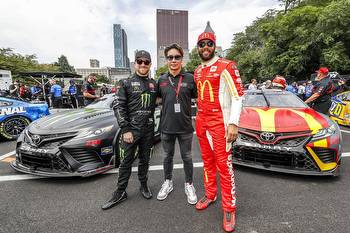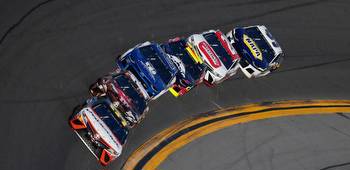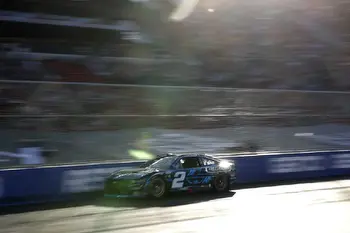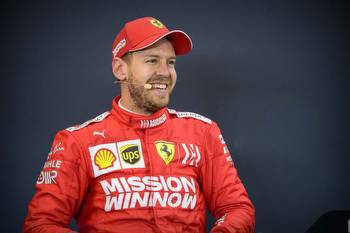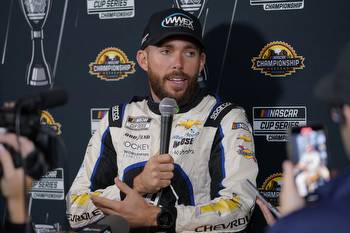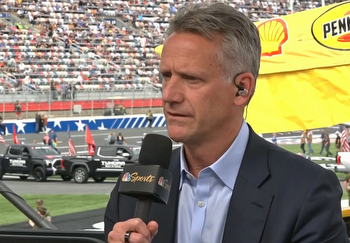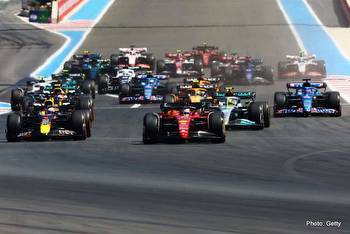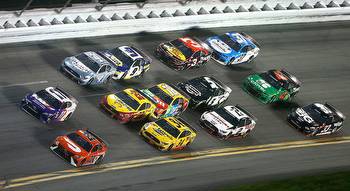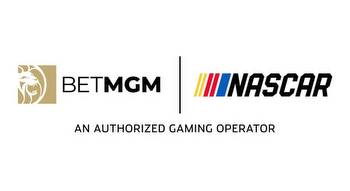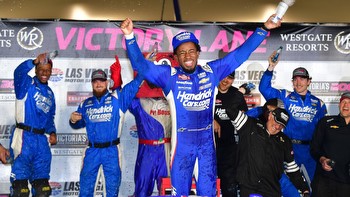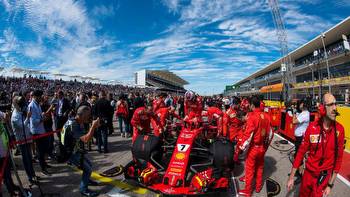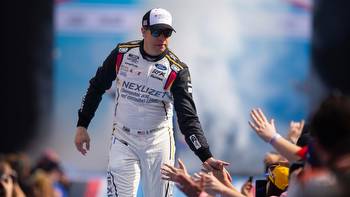Q&A: NASCAR executive talks expansion into Brazil
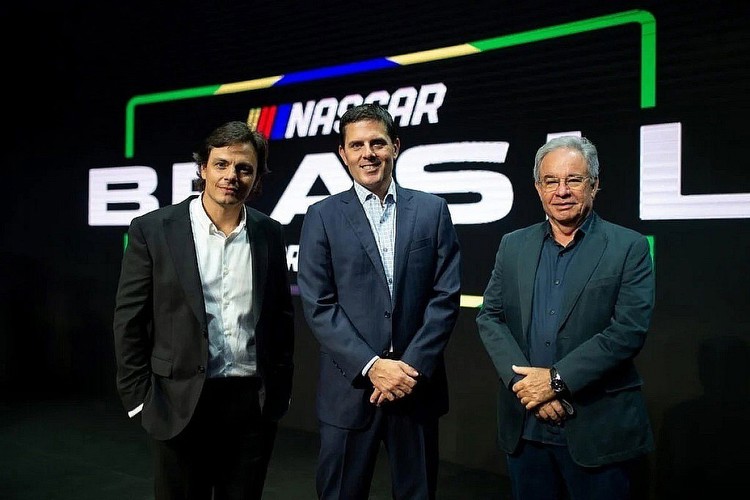
In late 2022, GT Sprint Race formed a partnership with NASCAR was rebranded as the NASCAR Brasil Sprint Race for 2023.
Now as conversations intensify about a possible Cup race outside of the US, the nation of Brazil keeps popping up in the discussion.
Nelson Piquet Jr. is the only Brazilian to ever win a national-level NASCAR race, winning once in the Xfinity Series and twice in the Truck Series.
Below is an exclusive Motorsport.com Q&A with NASCAR's Chief International Officer, Chad Seigler, talking about Brazil's place in the sport's future.
In general terms, how does NASCAR evaluate this first year in Brazil?
"Our expectations were far beyond what we expected, our results were far beyond whatever those expectations were. If you look at the number of fans that showed up at this historic venue, you look at the type of racing we saw. Plus, we had a driver doing the NASCAR combine in Charlotte, so from that standpoint, 100% It exceeded expectations for me and everyone in NASCAR. I think the important thing for us is that we are keeping an eye on Brazil because we need this type of market. This is not a one-year deal for us, as we sit down and talk regularly with Carlos [Col] and Thiago [Marques], and the discussion is always about where NASCAR will be in five years. So, although this year has exceeded expectations, I usually talk in meetings that we have to talk about 2024."
Was NASCAR unaware of its own power outside the United States?
"It's another big discussion when you think about how we got to where we are today. We started talking to Col and Thiago five years ago and they told us, ‘Brazil is ready for NASCAR, Brazil is ready for NASCAR’. I would say I think the timing and the reason we've been successful this year is we probably weren't ready five years ago. And we are now.
"If you go back five, six years ago, NASCAR's International Department consisted of one person who actually performed that role in addition to his day job. Five, six years ago, the company started doubling down on international efforts, we had tremendous growth in the United States, but only a few additional fans. So where is the next fan base, and that's where this team was formed. So, if you look today, the department has gone from being one person who focuses part-time on international growth, to having a team of eight to 12 people who wake up every day and are only focused on growing internationally. So I think there is definitely an initiative within the company. It's one of the two or three main initiatives we look at to grow the sport, but I think we're more structured internally to support that growth.
"In Europe, where you have a lot of history with open-wheel racing, touring, one of the things we saw is that there is a passion for ‘NASCAR-style’ racing. And that opened the door for us to really start exploring outside of North America. You take it a step further and look at Brazil and the history of motorsport in this country."
NASCAR in Brazil already pays a lot of dividends, but in comparison to Canada, Mexico or even Europe, how would you place Brazil as a market outside the United States?
"It's unfair to put a ranking, because I think you look at each market differently. You look at Canada and that is a very developed market. We have owned a series for over 15 years. And there is a natural synergy that happens because between Canada and the United States there is a natural border. You look at Europe and there has been a huge education process in the NASCAR style of racing. You look at Mexico, it's a category we've been involved with for over 15 years. I would say that Mexico is very advanced in driver development. We are lucky to have a driver in the Cup Series -- Daniel Suarez. What catches my attention when I look at Brazil is that the talent of the group of drivers is very advanced compared to other markets we would go to.
"We saw dividends being rewarded in the sense that, with our Cup Series, Brazil has always been one of our best television markets. It's number 1 outside of Canada, the United States and Mexico, and it's always been a strong market. Therefore, outside of North America, Brazil has always been a strong television market for us. I think a lot of it goes back to the passion for motorsport. So there is a knowledge of NASCAR-style racing. And Brazil, currently, is the only place where no oval races take place. So that's an area of focus for us, for Carlos and Thiago now."
What about Brazilian drivers?
"This year, at the time of the Daytona 500, we brought a group of drivers to Daytona. I thought it was a great entry point and you had two goals: first, let them experience what the Daytona 500 is and what NASCAR is. Because we want it to be an aspiration, exactly as it is for us and we want the NASCAR Brazil champion to be known and loved in Brazil, but then he decides as a goal instead of going to Monaco, to go to Daytona. We want them to see that this is an aspiration, that it is attainable.
"Secondly, there were five or six drivers who had the chance to be in an oval car. And I'll tell you, the team we work with told us: 'these guys have never been in a car on the oval and they get it', I mean, the crew chief even told us, there's three or four of them that I would take now. I think this is a sign to us that it works.
Photo by: Action Sports Photography
Victory lane: race winner Nelson Piquet Jr. celebrates
"We also have two other platforms that we are using. One is what we call a driver diversity program. It's a program designed to provide access to drivers, crew chiefs and mechanics who want to develop their career in NASCAR, so this is an opportunity. We had a Brazilian driver this year [Arthur Gama] and traditionally around 25 were selected for a sort of final evaluation process. And then 10 to 12 when there is a week of immersion. They learn media training, how to engage with partners, they learn the sport, and then they get two or three days behind the wheel to learn NASCAR racing. The other element that we're looking at aggressively right now is a traditional driver exchange program. We've had a lot of interest, we've seen a lot of interest from teams in the United States who have expressed interest because they understand what the potential is for drivers here. Yeah, so that's another thing we're trying to look at: the year 2024 is the nexus point that we can get our teams to try to have a little bit more cross."
The last experience of the Cup Series outside of North America was in Japan. Can we expect a race, even non-points, at Interlagos in the coming years?
"If you look at what we did in the Cup Series, the last time the series left was in the late 1990s, in Japan. The Xfinity Series has already gone to Mexico and Truck, in Canada. So we are comfortable leaving the United States. It's an honest opinion, and we've talked about it a lot. It's not a question of whether we leave the United States, it's a question of when. The schedule for the 2024 season has obviously already been finalized and we have started working on the 2025 season.
"But I will tell you that there are several markets that we are answering questions, including of interest to us, where we want to go, there is a reason why we are here now competing under the NASCAR name. This is because we identify this market as one that intrigues us a lot. It's not a random topic. So you look at the infrastructure, you look at the fan support, you look at the media support that we already have. So again, nothing to talk about dates specifically. Are we focused on bringing NASCAR to countries outside the US? The answer is definitely yes. Are we focused on taking NASCAR outside of North America? This is a second yes. And is this a market that intrigues us? This is the third yes."
Would American fans be open to having four, five drivers from outside the United States in the Cup Series?
"I am 100% confident that yes. First of all, the United States is like the melting pot of the world. So there are fans and citizens from all over the world living there and the United States has a strong sports market. So, having that driver who is under the Brazilian flag will make the Brazilian population very excited. It will also make Brazilians in the United States very excited, but most importantly, our fan base loves the story of a winner. They love the story of someone who came against all odds.
"And we've seen this happen in the past. For example, if you go back 15 years ago at a Daytona 500 and look at the starting grid, most of the drivers were from the southeastern part of the United States, probably six to seven of them being from North Carolina, South Carolina, Georgia. And then there was this transition that happened over time. A few years ago, if you looked at the starting grid for the Daytona 500, I believe California had more drivers. You look now and there might be a driver from the state of North Carolina, so there was this kind of explosion. Now, for me, I would be happy if we look at the starting grid of the Daytona 500 and we have a driver from Brazil, from Mexico, from Europe, from Canada and from anywhere else."
About the car. Is it true that in five years, the cars in NASCAR Europe, Canada, Mexico, and Brazil will be the same?
"The answer is ‘hopefully yes’. But you have to understand and respect each market. We are very confident in presenting NASCAR-style racing. We also understand that this is how passionate fans are and each market is a little different. That said, one thing we're really focused on right now is what we want to try to get to: if you look at Brazil, Canada, Mexico and Europe, it's four different platforms, different chassis. There are four different engine packages. So, I'm not necessarily saying that we will have a unified format, but the closer we can get, I think that will allow us to expand faster in the sense that you can start doing driver exchange programs where a Brazilian can race in Europe and I don't feel that much of a difference from the car. Therefore, it is not something that will be resolved tomorrow. But again, as I mentioned at the beginning, we're not thinking about one year, we're thinking about five years, we're thinking about 10 years."
Will you think about an international broadcast of NASCAR Brazil, in English?
"Great question. What we are doing in Brazil is broadcast in Brazil. One of the things we talked about, I think the first step is how do you start delivering some content to the United States, a lot of it, we do social media, and obviously there's some translation there. This allows US culture to perhaps follow, so that's something we're watching. That being said, one thing I always tell all drivers, when you are being interviewed for the Daytona 500, my only request is that you speak Portuguese. Because we want drivers to be who they are."

